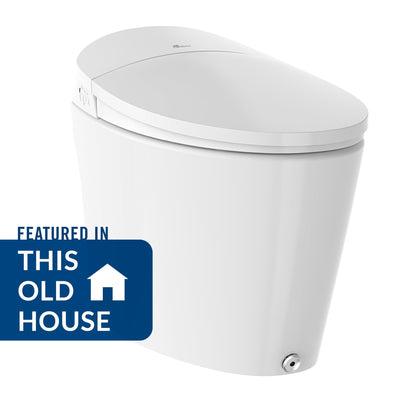5 Causes of Chronic Constipation
Chronic Constipation: Causes, Symptoms, and Treatment
Backed up? You're not alone. Each year, roughly 4 million Americans experience constipation, making it the single most common digestive complaint in the US.
But what if your occasional constipation becomes a recurring or even a constant problem? Chronic constipation has severe health and wellness consequences that require changes in diet, activity levels, and, in some cases, medical intervention.
What Is Chronic Constipation?
Chronic constipation is usually defined as recurring constipation symptoms, often requiring medication or healthcare visits to resolve. In most cases, sufferers of chronic constipation must meet two of these criteria at least 25% of the time for 3 months:
- Fewer than three bowel movements over seven days
- Straining to have a bowel movement
- Hard or painful bowel movements (hard stools)
- Incomplete evacuation
- Requiring manual manipulation to evacuate stool
- Physical blockages
Talk to your healthcare provider if you believe your constipation meets these diagnostic requirements or have questions about your condition.
Related: How Often Should You Poop?
Chronic Constipation: Causes and Health Risks
The most common underlying causes of chronic constipation are related to lifestyle habits, such as poor diet, low physical activity level, and poor hydration.
Individuals with chronic constipation often have underlying issues that make treatment more challenging.
Physical Blockage of the Colon or Rectum
Healthcare providers may physically inspect the colon, rectum, or anus to locate physical structures causing constipation. These could include various polyps, anal fissures, bowel strictures, or, in some cases, evidence of colon or rectal cancer.
Nerve Damage
Nerve-related issues can cause the lower digestive tract, colon, or rectum to contract during defecation. Some constipation issues are caused by neurological damage inflicted by a stroke or Parkinson's disease.
Hormones
Hormone imbalances contribute to constipation but affect pregnant women and individuals with diabetes more frequently than the general population. Individuals with over or underactive thyroids may also experience constipation related to imbalanced hormone levels.
Additional Risk Factors
Every individual has unique experiences and risk factors, but many chronic constipation patients share a few general characteristics.
- Over the age of 50
- Female
- Frequently dehydrated
- Low-fiber diet
- Sedentary or low activity level
- Certain medications
- History of depression
- History of one or more eating disorders
Making Healthy Changes
The most common treatment for chronic constipation is to focus on diet and lifestyle changes. Your healthcare provider will recommend an increase in your daily fiber intake to meet or exceed the recommended amount for your size and weight.
Regular exercise, drinking enough water, and getting enough sleep will also improve your symptoms – not to mention your overall health.
Medications and Other Factors
Your doctor will also examine medications that may cause or exacerbate constipation. In some cases, a doctor will recommend alternative drugs with the same benefits but without constipation-causing side effects. If you believe your medication is causing you chronic constipation, ask your doctor about alternatives to your current prescriptions.
Should I Take Laxatives for Chronic Constipation?
Over-the-counter laxatives are best used for infrequent bouts of constipation. Using OTC laxatives like stimulants, osmotic medications, or even all-natural stool softeners can result in biochemical dependency and won't solve the condition's underlying causes. Always follow the manufacturer's instructions, limit use or dosage to the recommendations on the package, and let your doctor know you're using OTC to treat your constipation.
Health and Hygiene Come First at Bio Bidet by Bemis
Constipation affects millions of Americans each year. We believe bidets can play a small role on alleviating symptoms and improving overall well-being. We designed our first bidet and attachments over two decades ago to bring the health and wellness benefits of the bidets to American homes. We're proud to amplify digestive health awareness and provide our customers with hygiene-focused and luxury bathroom solutions. Find the right bidet for you in seconds or shop all our bidet seats, bidet attachments, and bidet toilets today.





